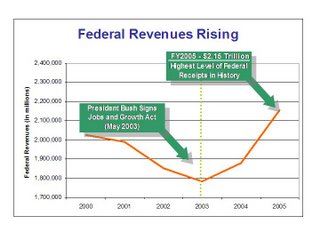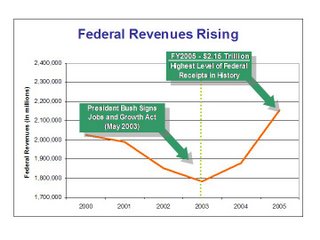Minimum Wage and Maximum Wealth, Part 1
Apart from the legislative manuevering, how do we compare the economic value of these two very different proposals?
The question is not very interesting on the bumper sticker level. Democrats cry that Republicans care only about rich folks. Republicans accuse Democrats of class warfare.
The two proposals represent opposite visions of what good economic policy should be. In its starkest terms, the argument of opponents of the minimum wage and the estate tax is:
1. There should be no floor on wages.
2. There should be no limits on wealth.
















